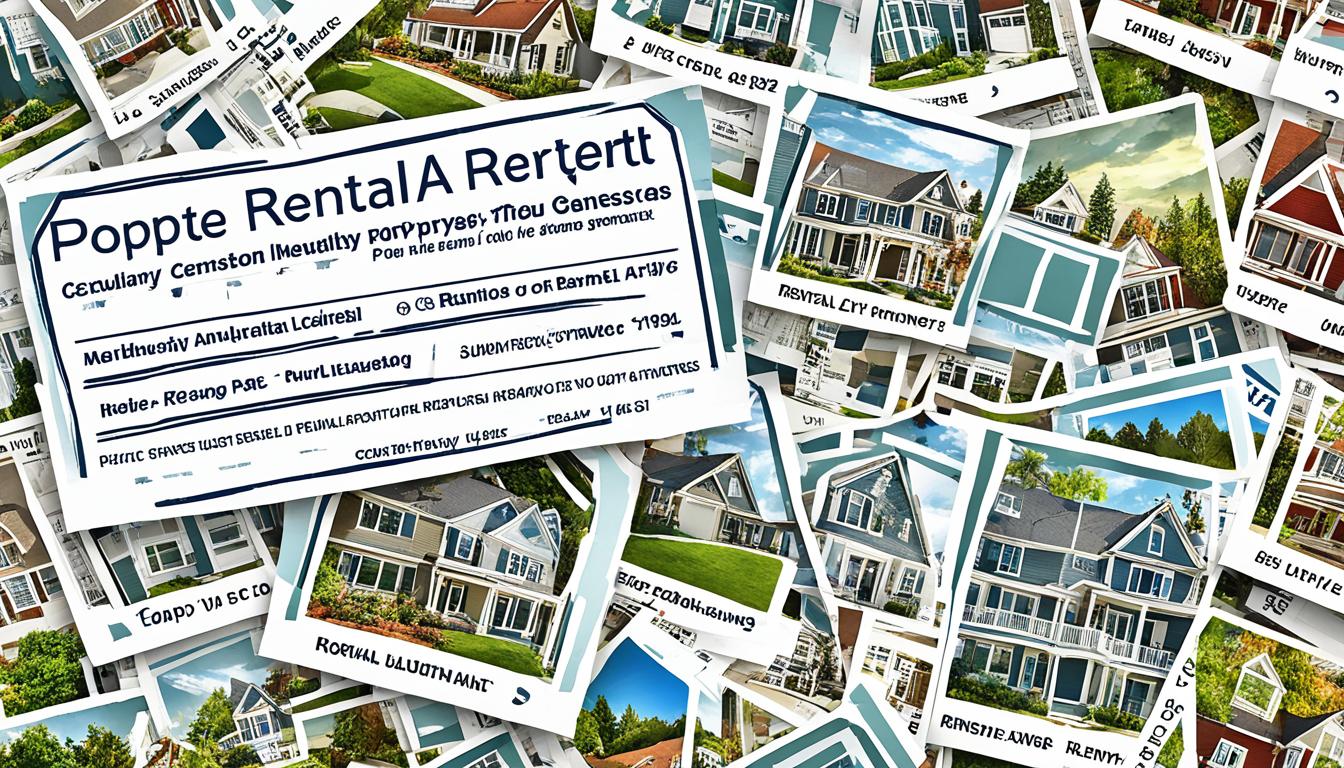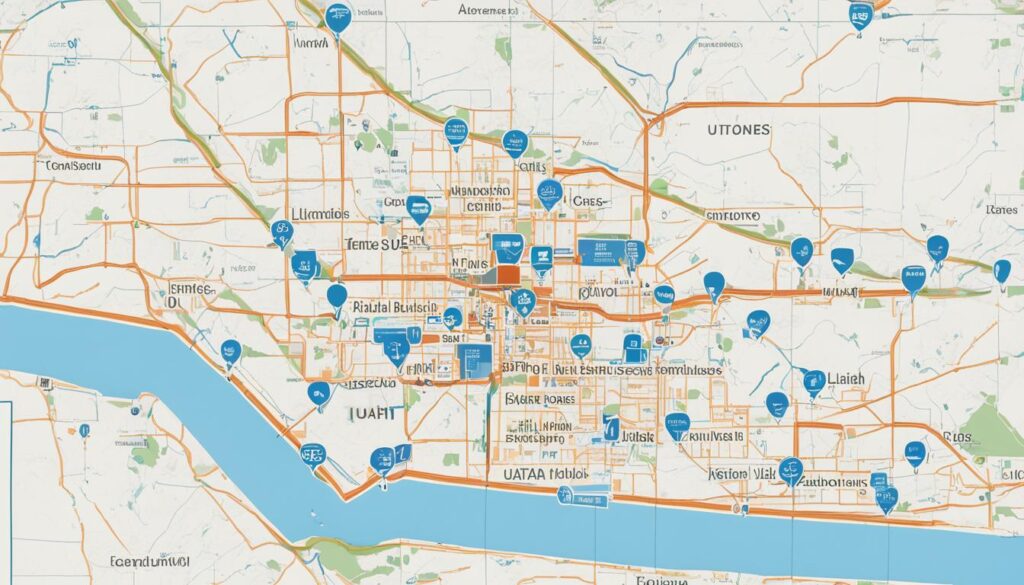Starting a rental property business can be thrilling and rewarding. But first, you must understand the licensing needed. Many landlords ask if they must get special permits to rent out their homes. The answer varies by location.
Getting a landlord license is key to the rental game. It’s not just about following laws; it’s about safeguarding your investment and tenants. Each area has its own set of rules. Some cities are strict, while others are more laid-back. Always check with your local housing department to see what you must do.
Remember, rental income is taxable. The IRS needs to know when you make money from rentals. Having the right license helps you manage your taxes better. It’s wise to understand rental business licenses to avoid tax issues later.
Key Takeaways
- Rental property licenses vary by location
- Proper licensing protects your investment
- Check local rules before renting out property
- Licensing helps with tax compliance
- Some areas have strict rules, others are more flexible
Understanding Rental Property Business Licenses
Are you thinking about getting into rental properties? You’ll need to learn about property management licensing. This is key for real estate investment licensing. It makes sure you’re running your business legally and keeps you safe.
Types of Licenses for Landlords
Landlords usually need two main licenses:
- Certificate of Occupancy: This shows your property is safe for tenants.
- Housing Business License: This lets you legally rent out your property.
Both licenses are crucial for landlord business registration and following local laws.
Importance of Local Regulation Compliance
Following local rules is key for a successful rental business. Proper licensing helps you:
- Protect your property investment
- Ensure tenant safety
- Keep good relations with local authorities
Consequences of Unlicensed Operations
Running without proper licenses can cause big problems:
- Heavy fines
- Business closure
- Insurance issues
- Problems with evicting tenants
Keep up with your licensing needs to dodge these issues. Remember, real estate investment licensing isn’t just a one-time thing. You’ll need to renew licenses and keep up with new rules to keep your rental business going.
Common Licenses Specific to Landlords
Landlords must follow certain rules to legally run their business. It’s key to know about these licenses for property management. Let’s look at the main licenses you’ll come across in the landlord licensing process.
Certificate of Occupancy
A Certificate of Occupancy shows your property is safe for tenants. It comes from local building authorities after they check your rental unit. This document says your property meets safety standards and zoning laws. Without it, you can’t rent out your property legally.
Housing Business License
Many cities need a housing business license for each rental unit. This license is part of the property management licensing process. The application form changes based on your property type. Some places require yearly checks and renewals, costing about $250 a year.

Property Type Variations
Licenses vary by your property’s location and type. For example:
- Single-family homes might need a basic rental permit
- Multi-unit buildings could require more complex licenses
- Short-term rentals often face stricter rules
Always talk to your local housing department for specific landlord licensing rules. Following these rules protects your rental business and keeps things running smoothly.
Do I Need a Business License for Rental Property?
If you’re thinking about real estate investment, you might ask, “Do I need a business license for rental property?” The answer depends on where you are and the kind of rental you have. Many places need landlords to get licenses or permits. These are for tax reasons and to help with tenant issues.
For renting out houses for a long time, you usually don’t need a state license. But, you should look into local permits, as they’re often needed. Short-term rentals have tougher rules. For example, Florida requires licenses for vacation rentals. In Maryland, local rules apply to short-term rentals.
Rental income taxes also affect licensing. Some places use business licenses to keep track of rental income for taxes. This makes sure landlords report their income correctly.
Getting into real estate investment can be tricky. Here’s a quick guide to help you:
- Check your local government website for rental property rules
- Talk to your city’s business licensing department
- Get advice from a local real estate lawyer or tax expert
- Look into state rules for your rental type
Knowing and following the rules helps protect your investment and keeps you out of legal trouble. It’s key to making your rental property business successful.
Navigating State and Local Licensing Requirements
Rental property owners must deal with many rules that change based on where they are and what they rent out. It’s crucial to know these differences to run a successful rental business.
Long-term vs. Short-term Rental Regulations
Long-term rentals usually have easier licensing rules. Short-term rentals have stricter rules. Airbnb host regulations often set limits on how many days you can rent out and how many guests you can have.

State-specific Licensing Examples
In Florida, you need a vacation rental permit if you rent out your property more than three times a year. Maryland lets local areas set their own rules for short-term rentals. Make sure to check your state’s laws to follow them.
City-specific Permit Requirements
Cities often have their own rules for short-term rentals:
- Atlanta: Needs a permit and limits rentals to 180 days a year
- San Francisco: Requires hosts to live in the property for at least 275 days a year
Look into your city’s specific rules for vacation rental permits. Knowing the local laws helps you avoid fines and run a successful rental business.
Landlord Responsibilities Beyond Licensing
Getting a rental property business license is just the start. As a landlord, you have many duties to keep your tenants safe and content. Let’s look at what you need to do after meeting the licensing requirements.
You must give your tenants important info. This includes details about dangers, inspection times, and how rent should be paid. For homes built before 1978, you must tell tenants about lead paint risks by law.
State laws differ, but most require landlords to share certain info with tenants. Some common disclosures include:
- Presence of hazardous materials
- Rent control policies
- Tenant rights during property inspections
- Location of safety equipment
Your work isn’t just about paperwork. You must keep your property safe and habitable. This means taking care of common areas and outdoor spaces. Regular upkeep helps avoid accidents and keeps tenants happy.
Don’t forget, property management licensing often means you need to keep learning. Stay current with new laws and best practices. This helps protect your rental business and tenants.
Strategies for Maintaining Compliance and Protecting Your Rental Business
To keep your rental property safe, start by using pre-rental and move-out checklists. These tools help you see the property’s condition and track any damage from tenants. This is key for keeping your investment safe and following the rules for rental licenses.
Always respect your tenants’ privacy. Always give them 1-2 days’ notice before you enter the property. This builds trust and follows landlord licensing rules in many places. It’s also key to keep tenant info safe. Make sure to follow the Fair Credit Reporting Act to protect personal and financial details.
Think about using third-party services for applications and payments. These platforms keep sensitive info safe and make things easier for you. Lastly, don’t be afraid to talk to legal experts. They can help you understand real estate investment licensing rules. This ensures you meet all federal, state, and local laws.
FAQ
What types of licenses do landlords typically need?
Why is it important for landlords to comply with licensing requirements?
What is a Certificate of Occupancy, and why is it necessary?
Do I need a business license for rental property income?
How do licensing requirements differ for long-term vs. short-term rentals?
What are some landlord responsibilities beyond obtaining licenses?
How can landlords ensure ongoing compliance and protect their rental business?
Author
-

David Nguyen is an expert in business licensing, with extensive knowledge in local and international regulations. His expertise is crucial for businesses seeking guidance on compliance and licensing strategies.
View all posts



